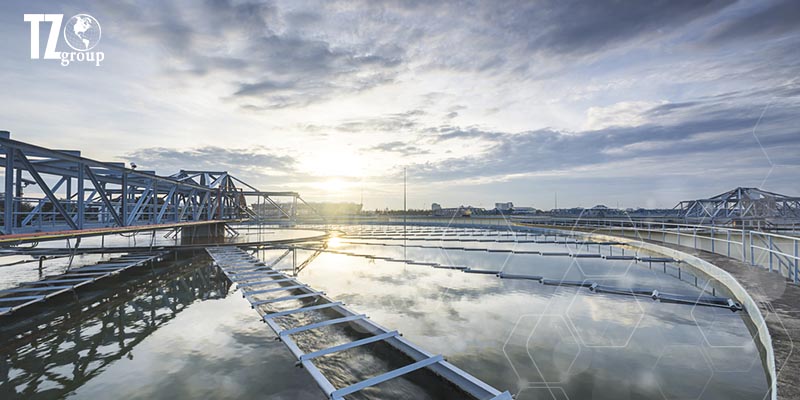Clean, safe water is essential for life, and industrial water treatment systems are a crucial component in ensuring clean water flows through our communities. These systems involve a series of steps that guarantee the water you’re using is safe and free from contaminants, so it can be used in a variety of industries such as food and beverage, oil and gas production, and agricultural operations. In this article, we’ll explain what an industrial water treatment system is, how it works, and the types of chemicals used in the process.
What Is an Industrial Water Treatment System?
An industrial water treatment system is designed to treat wastewater or other contaminated water sources to make them usable for industrial applications. This includes removing pollutants, such as heavy metals and organic compounds, as well as treating the water for any biological contaminants.
The most common types of industrial water treatment systems include filtration systems, reverse osmosis systems, aeration systems, activated carbon adsorption systems, membrane bioreactors (MBR), and electrochemical oxidation.
Each system is designed with a specific purpose in mind and uses a combination of chemical processes to achieve optimal results.
How Does it Work?
The basic principle behind an industrial water treatment system is to remove pollutants through a series of stages by using physical, chemical, biological and thermal processes.
The process of industrial water treatment typically consists of four main steps:
- Filtration
- Chemical addition
- Sedimentation/flocculation
- Disinfection/sterilization.
During the filtration stage, large particles are filtered out using a physical barrier (such as sand filters or cartridge filters).
Chemical addition then follows to remove any remaining impurities, including dissolved solids like metals and organic compounds.
The sedimentation/flocculation step helps separate suspended particles from the solution by adding flocculants (specialized polymers) which cause them to clump together into larger particles that can be removed more easily.
Finally, disinfection/sterilization involves killing any remaining bacteria or other microorganisms with UV light or chemicals like chlorine or ozone.
Depending on the type of wastewater being treated, additional steps may be needed to meet specific discharge requirements set by regulatory agencies.
The Role of Chemical Addition in Wastewater Treatment Systems
Chemical addition plays an important role in an industrial water treatment system because it helps to remove impurities from the feedwater.
The common chemicals for industrial water treatment include acetic acid, chloridric acid, sulfuric acid, nitric acid and chlorine. These chemicals help break down pollutants so they can be filtered out more easily or treated with other substances such as ultraviolet light or ozone.
Additionally, these chemicals also help control pH levels which is important for maintaining optimal conditions within the wastewater stream.
TZ Group’s Quality Chemicals & Services
An industrial water treatment system plays an important role in protecting our environment from contaminants found in wastewater streams from various industries.
If you need help choosing the right type of chemical solutions for your business’s needs — contact TZ Group today! We offer quality products at competitive prices so our customers get exactly what they need without breaking their budget!
Our team prides ourselves on delivering differentiated innovation through sustainable solutions with responsibility towards our community! Contact us now to learn more about our products and services!


